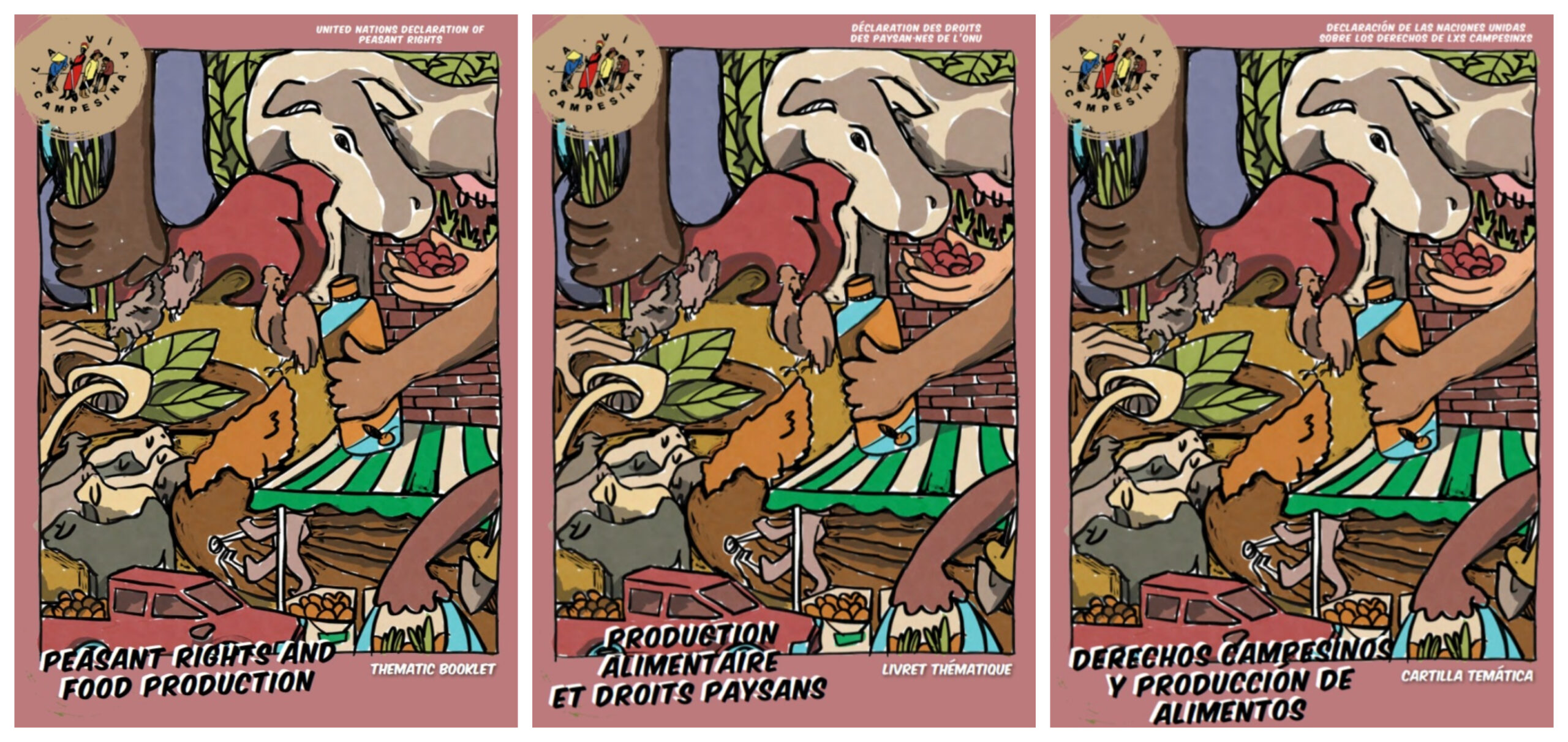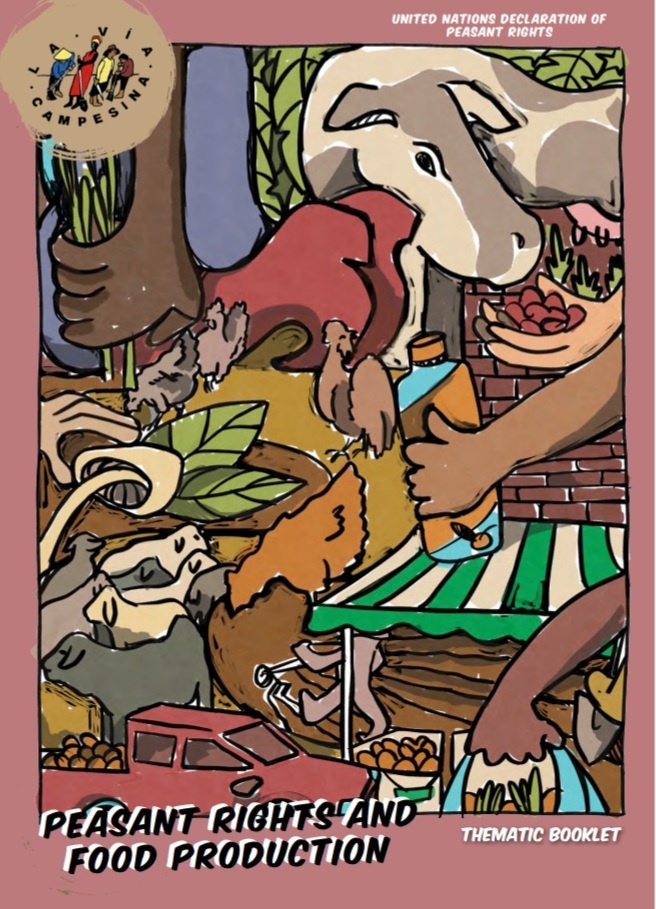UNDROP Thematic Booklet No. 2: “Peasant Rights and Food Production” Now Available

The Second Thematic Booklet on “Peasant Rights and Food Production” is now available! This is the second of four thematic booklets—part of the popular education materials to be used as a crucial step in reconnecting those who inspired and created United Nations Declaration on the Rights of Peasants and Other People Working in the Rural Areas (UNDROP).
The right of peasants to participate and define their own food production systems is an essential part of food sovereignty. In our struggle to affirm and protect this right, we can learn how to use the United Nations Declaration on the Rights of Peasants and Other People Working in Rural Areas (UNDROP) in our own contexts (See the introductory booklet in this series for background information on UNDROP). The different ways peasants grow, gather, hunt, raise, and make food are together called peasant food production. Food production is the foundation of peasant food systems. Of course, equitable access to resources is vital for thriving peasant food systems (see the previous thematic booklet on access to resources).
This second thematic booklet on Peasant Rights and Food Production explores how UNDROP can be used to (1) address and protect peasants’ rights to produce food on our own terms and challenge monopolies that control the land, tools, and technology, (2) transform food production and industrial food system into one based on agroecology and food sovereignty, (3) fight for the protection of traditional knowledge systems and cultures that shape peasant food production, (4) understand state’s responsibilities and empower ourselves to raise our voices, and work towards comprehensive popular agrarian reforms to achieve food sovereignty.
About Popular Educational Materials
The popular educational materials will help us to effectively use the UNDROP in our struggles to assert and advance our collective and individual rights. They will help to create broader awareness, promote deeper understanding and enhance capacities (through training) of rural people’s movements. We should use this booklet as a foundational tool to ensure that the UNDROP will be respected, implemented and promoted at all levels, from local to international, from community customs to policymaking mechanisms. The UNDROP popular educational materials are being developed by La Via Campesina and FIAN International. Access them all here.

